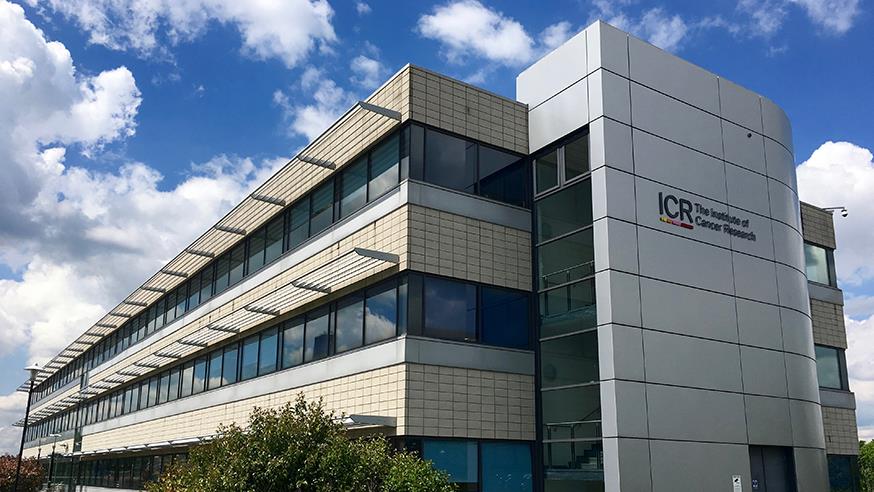
Image: Sir Richard Doll building in Sutton
Figures collated for Research England’s annual Higher Education Business and Community Interaction (HE-BCI) survey show that after adjusting for number of research staff, the ICR made more from its intellectual property than any other UK academic institution for the sixth consecutive year.
The ICR made £27.8m from commercialising its intellectual property, compared with £24m in the previous academic year (2017-18).
For the past two years the ICR has topped the rankings outright. This year, the ICR was ranked second for absolute level of invention income, behind only the 10 times’ larger University of Oxford.
Much of the ICR’s invention income comes from royalties on the sales of drugs we have helped create – in particular abiraterone (trade name Zytiga), the blockbuster prostate cancer drug discovered at the ICR, and more recently olaparib (trade name Lynparza), which we discovered how to genetically target.
On top of our invention income, we also receive several million pounds per year from research collaborations with partners, and more from other sources such as consultancy. Our commercial income is invested back into our research to find new treatments for people with cancer.
Partnerships
We have more than 100 current partnerships with a broad range of companies, from big pharmaceutical companies like Merck, AstraZeneca and Roche and large medical technology firms like Elekta and Philips, to smaller biotech and medtech companies and contract research organisations.
You can find out more about our commercialisation work on our Working with Industry pages, including our partnering philosophy and opportunities to partner with our researchers. You can also sign up to our industry newsletter Connections.
Our Enterprise Unit oversees our work with commercial partners. Our Director of Enterprise, Angela Kukula, said:
“We’re proud of our status as a leader amongst UK academic institutions in our collaboration with industry. Our strategy is based primarily on achieving patient benefit, not on making profit, but our continued strong performance in invention income is a reflection of the strength and breadth of our partnerships and the excellence of our research – and the fact that our discoveries become cancer treatments used across the world.”
Dr Angela Kukula has recently launched a six-part blog series detailing the importance of Knowledge Exchange Offices (KEOs) in creating commercial opportunities for research institutions.